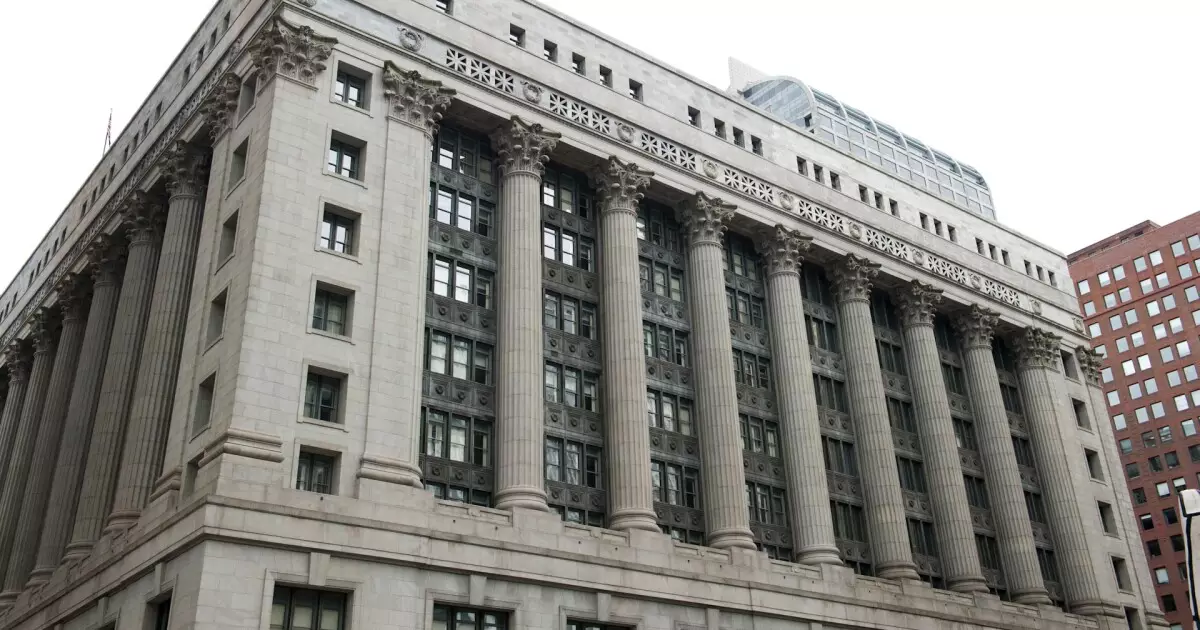Fiscal Turmoil in Chicago: The City Council’s Rejection of Tax Hikes

Chicago finds itself embroiled in a significant fiscal crisis as the City Council recently rejected a key aspect of Mayor Brandon Johnson’s proposed budget for fiscal year 2025. The Mayor’s plan included a controversial $300 million property tax increase, intended to address a staggering budget shortfall of $982 million. The decision to vote down this increase came without any debate, underscoring the urgency and severity of the budget discussions taking place within the city government. This abrupt rejection mirrors a string of difficulties Chicago has faced, particularly concerning its financial health, raising profound questions about governance and public accountability.
The need for the property tax boost illuminated a severe imbalance: while Johnson called for more funds to meet the city’s obligations, including vital services and pension commitments, the Council underscored its discontent with proposed solutions. Their unanimous disapproval appears to reflect not just disagreement with the tax solution itself, but a broader concern about fiscal responsibility and the methods being employed to restore financial order within the city.
The timing of this vote was particularly notable, occurring just days after the Kroll Bond Rating Agency issued a “Watch Downgrade” on Chicago’s general obligation bonds. Such a rating implies a heightened risk for investors, as the agency seeks reassurance of collaborative governance between the Mayor and the City Council in forging a path toward financial sustainability. Kroll’s Senior Director, Linda Vanderperre, emphasized the need for consensus regarding alternative budget solutions by the end of 2024, reflective of Chicago’s precarious fiscal standing.
This situation amplifies existing tensions, particularly concerning the city’s obligations to its pension schemes, which have historically contributed to its financial woes. Experts, including Howard Cure from Evercore Wealth Management, have suggested that the real challenge lies beyond merely hiking property taxes; it is the management of pension payments and the delicate balance of maintaining fiscal discipline while committing to retiree benefits that is imperative for Chicago’s financial health.
Structural vs. One-Time Revenue Solutions
One core issue highlighted by the Kroll assessment is the city’s propensity to utilize one-time financial fixes instead of implementing robust structural changes. The proposed budget for 2025 revealed an alarming reliance on temporary solutions (20%) rather than long-term revenue strategies (80%). This pattern raises concerns about sustainability; as temporary fixes may provide immediate relief, they do little to resolve the deeper issues plaguing Chicago’s finances.
Civic watchdog organizations have suggested a variety of alternative revenues beyond the property tax increase. The articulation of these alternatives, such as a city income tax or service fees, highlights the need for innovative and legislative changes that could ease the financial burden without compromising city services. However, many of these proposals would require substantial changes in state law, creating additional hurdles in the path to fiscal stability.
Additionally, external economic factors are weighing heavily on the city’s fiscal health. The ongoing budget challenges at the state level complicate the situation; with Illinois facing a $3 billion deficit, the likelihood of state-level fiscal support for cities grows increasingly slim. As local governments like Chicago grapple with their financial needs, there are rising concerns about the state’s strategy to balance its budget potentially at the expense of municipal funding.
As highlighted by Cure, the interplay between city governments and state financial health is increasingly precarious. He posed critical questions regarding the sustainability of city budgets if the state turns inward to address its own fiscal pressures. As Chicago attempts to navigate its budgetary difficulties, a multifaceted approach that considers both local and state financial dynamics appears essential.
The rejection of Mayor Johnson’s property tax increase not only reflects immediate concerns but also signals a larger dialogue about fiscal responsibility, governance, and the need for structural reforms within Chicago’s financial framework. Stakeholders must recognize that achieving budgetary balance is not just about tweaking existing solutions but about fostering innovative strategies that emphasize long-term fiscal health.
Moving forward, the Mayor’s administration and the City Council must engage in a collaborative effort to explore diverse revenue streams while staying mindful of the necessary services that their citizens rely on. Without thoughtful navigation of both immediate fiscal challenges and overarching systemic issues, Chicago risks languishing in a cycle of financial instability that could have dire consequences for its inhabitants and institutions. The road ahead is undoubtedly complicated, but through consensus, innovation, and accountability, a sustainable future for Chicago may still be within reach.





